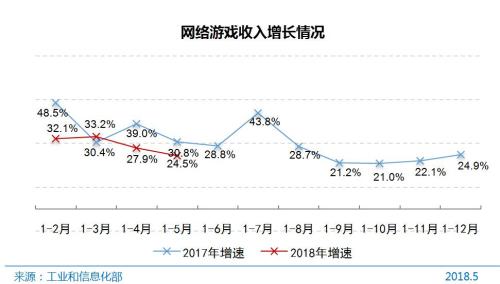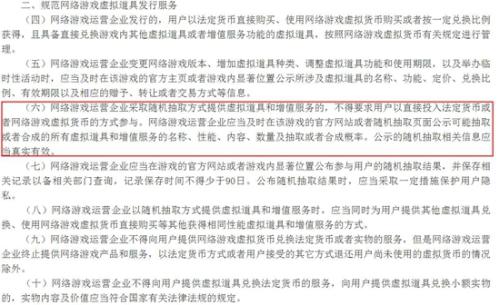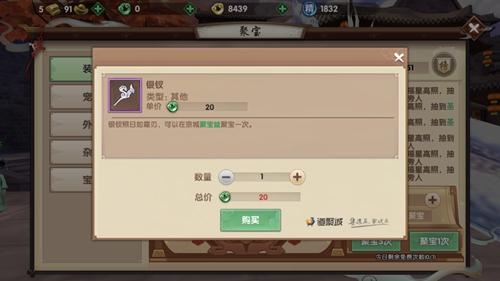There are more and more players in the game "Krypton". Do you know these tricks?
BEIJING, Dec. 16 (Reporter Wu Tao) "After filling 1000 yuan, he is still a beggar in the mobile game. Sadly, unconsciously, the money is spent." This is a true portrayal of many mobile games at present.
But do you know that some of the money you recharged is likely to be cheated by game operators in violation of relevant regulations?

There are more and more players in the game "Krypton"
Almost 6 out of 10 netizens are playing games.
According to the data released by China Internet Network Information Center, by the end of May 2018, the number of online game users in China reached 486 million, accounting for more than 60% of the total netizens. And there are many "Krypton" players, that is, paying players.
Qiqi (pseudonym), who claimed to have played hundreds of games, was one of them. For a while, she was fascinated by the mobile game "QQ Speeding" and spent eight or nine thousand yuan in it: the harvest was two permanent A cars and some beautiful costume props — — If you don’t play the game, these props are worthless.
"I abandoned the pit recently, and I went to play Miracle Warm, but this game needs more money." According to Kiki, playing games is the same as life, that is, constantly moving from one pit to another.
"Abandon the pit" almost every online game player knows what it means, that is, no longer continue to recharge in the game. But there is a game in your heart, and it is difficult to leave if you abandon the pit.
Kiki is not a case. According to the "2018 Mobile Game Industry Research Report" recently released by Aurora Big Data, from the payment rate of mobile games, the payment rate after 00 is as high as 85.2%.

A game company that earns a lot of money.
In Kiki’s eyes, the game is really a profitable business, which is also the cognition of most players. Actually, it’s really making money According to statistics, from January to May 2018, China’s online game business revenue was 74.3 billion yuan, a year-on-year increase of 24.5%.
It can also be observed from the financial reports of listed companies. Take Tencent as an example, its latest financial report shows that the total revenue in the third quarter of 2018 was 80.595 billion yuan, of which online game revenue reached 25.813 billion yuan, accounting for about 32% of Tencent’s total revenue. As a kind of value-added service, it accounts for the largest proportion of its income.
Another game giant, Netease’s net income in the third quarter of 2018 was 16.855 billion yuan, and the net income of online game services was 10.348 billion yuan.
Moreover, the game prospect is promising, and the user scale is still growing at a high speed. In the first half of 2018, the half-year growth rate of online game users reached 9.9%, which is much higher than the so-called star industries such as take-away and bike-sharing.
No wonder, after the news that "the glory of the king" earned 100 million yuan a day was exposed, Zhou Hongyi, Chairman of 360 Board of Directors, even diss "the glory of the king": it was higher than the income from drug trafficking.
Attracted by rich profits, this industry is hot. According to the data of China Internet Network Information Center, as of May 2018, game applications have always accounted for a large proportion, with the number exceeding 1.52 million, accounting for 36.6%, far ahead. It far exceeds the scale of life service applications ranked second, with about 563,000 such applications, accounting for 13.6%.

Are the game revenues compliant?
How did the game make so much money? It is understood that at present, many games are free, but providing virtual props and value-added services through random selection has become the accepted and recognized gameplay of online game users, and it is also the most common distribution method of online game operators at present.
In the operation of game enterprises, is this method in compliance operation? Let’s take a look at how the relevant departments stipulate.
On December 5, 2016, the former Ministry of Culture issued the Notice on Standardizing Online Game Operation and Strengthening Post-event Supervision, stipulating that online game operators should promptly publicize the names, performance, content, quantity and extraction or synthesis probability of all virtual props and value-added services that may be extracted or synthesized on the official website or random extraction page of the game. It will be implemented on May 1, 2017.
However, in actual operation, few game companies fully follow this notice. For example, the best prop "Black Lightning" of the permanent A car in the "QQ Flying Car" mobile game can only be extracted through "treasure hunt". There is no relevant data published on the probability of winning, whether it is extracting pages in the game or the game official website.
"It depends entirely on luck. In order to draw two permanent A cars, I almost spent 3,000 yuan to win." Kiki said, "According to my experience in so many games, I have never seen any game that will completely announce the specific probability of extracting or synthesizing props."
In the "Seeking Immortals" mobile game, the "Jubao" service (turntable lottery) was recently launched, and the probability of extracting the best props from it was not announced on the extraction page or official website. In many other games, there are countless operations similar to lottery, and the probability of drawing is not announced.

In the mobile game page of Seeking Immortals, it almost costs 2 yuan to draw a "Jubao" and convert it into RMB. Screenshot of the game page.
Addictive extraction
In most cases, RMB recharge support is needed behind the extraction services. You can simply understand "withdrawal" as follows: recharge RMB to the game platform to get the corresponding amount of virtual currency, use the virtual currency to buy the props needed for the withdrawal service, and complete the closed-loop transaction after using the props.
For example, in the mobile game "Jubao" of Seeking Immortals mentioned above, each draw requires one "silver hairpin", one "silver hairpin" requires 20 "fairy jade" (virtual currency in the game) and 20 "fairy jade" requires 2 yuan.
Since the probability of extraction is opaque, can’t I not extract it?
"If you want to play well, you basically have to rely on extraction, otherwise you will be abused by other players. Games often put advanced props in the prizes to attract players to save money, which is very addictive and always feels that they will win. " Game player Xiao I (a pseudonym) said.
The above report of Aurora Big Data also shows that in the selection of paid content, card drawing and lottery ranked first with a proportion of 37%. Among them, the post-90s generation spent 1171 yuan per capita.
"The game operator will definitely not tell you the probability of extracting the best props. Think about it. If it is published and the value is particularly low, the lottery winners may think about whether it is worth extracting, and the game companies will earn less money." Small I sum up experience.
The opacity of the extraction probability even extends to a new profession — — On behalf of pumping. That is, the player spends a certain amount of money, gives it to the experienced player, negotiates to ask for some kind of props, and the drawer is responsible for its own profits and losses until it is drawn.

Extraction-induced intractable diseases
In fact, mobile games have been extracting chaos for a long time. The Interim Measures for the Management of Online Games, which came into effect on August 1, 2010, stipulates that online game users shall not be induced to invest legal tender or online game virtual currency to obtain online game products and services by accidental means such as random drawing.
"But in the practice of supervision and law enforcement, it is difficult to identify what kind of behavior is" induction "." When the former Ministry of Culture issued a document, it said that the implementation of the Notice on Standardizing Online Game Operation and Strengthening Post-event Supervision is to let users clearly understand consumption, rationally predict the results, eliminate the risk of allegedly promoting gambling and inducing users to consume while retaining the fun and contingency of random sampling, and return to the essence of online games.
But at present, it seems that more than a year after the announcement, many game operators are still going their own way.